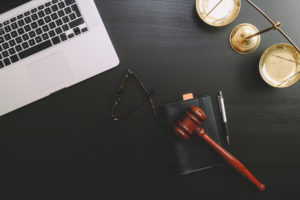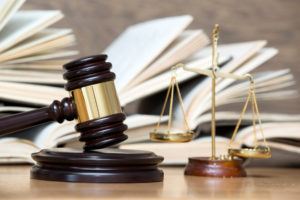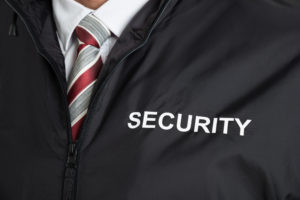 People who are injured on someone else’s property often wonder if they might have a viable premises liability case. After all, paying the medical bills for the injury and dealing with recovery (including possible lost wages) can all have a profound effect on someone’s life, and having to deal with those inconveniences seems unfair when the fault seems to lie with someone else. While a property owner is not always at fault if someone is injured on their property, it is helpful to be aware of the most common examples of premises liability cases so that building owners and managers can avert a crisis before it happens.
People who are injured on someone else’s property often wonder if they might have a viable premises liability case. After all, paying the medical bills for the injury and dealing with recovery (including possible lost wages) can all have a profound effect on someone’s life, and having to deal with those inconveniences seems unfair when the fault seems to lie with someone else. While a property owner is not always at fault if someone is injured on their property, it is helpful to be aware of the most common examples of premises liability cases so that building owners and managers can avert a crisis before it happens.
What Premises Liability Means
Premises liability is the principle that a building owner has a responsibility to provide a safe environment for guests, visitors, and residents; if the environment is not safe, the owner can be held liable for injuries sustained as a result of the environment. A plaintiff may seek legal action against a property owner who has not provided a safe and hazard-free property, and these types of cases are the most common personal injury cases that legal professionals deal with.
Slip and Falls
Perhaps the most common category of premises liability claims comes from people who slip and fall on a property. If an employee fails to mark a wet and slippery floor, if ice is not properly cleared from doorways, or if carpet is bunched and causes a fall that injures someone, that party may have recourse to hold the property owner liable. While it is true that not all slips, trips and tumbles are due to the environment, a responsible building owner is expected to inspect the property to ensure that hazards are removed.
Faulty or Unsound Structure
 As part of the responsible surveying of a property, an owner is expected to note and repair faulty structures to prevent injury. Unsound structures may include items such as cracked stairs, broken floors or sagging doorways, among others. Building managers often review the condition of their holdings to ensure that such structures are repaired; this is called their duty of care, and failing to note and fix these issues is grounds for a premises liability case.
As part of the responsible surveying of a property, an owner is expected to note and repair faulty structures to prevent injury. Unsound structures may include items such as cracked stairs, broken floors or sagging doorways, among others. Building managers often review the condition of their holdings to ensure that such structures are repaired; this is called their duty of care, and failing to note and fix these issues is grounds for a premises liability case.
Toxic Chemicals or Fumes
If residents or visitors are exposed to dangerous fumes, they may be eligible for a personal injury suit on the basis of premises liability. Things like gas leaks or cleaning crew who do not properly clean up their chemicals may put residents and invitees in danger. Even if fumes are appropriately marked, unavoidable exposure to them may still qualify as a liability for the property owner.
Inadequate Fire Safety Practices
One important part of being a responsible property owner is ensuring that residents or visitors have an effective escape plan in case of emergency. A building manager may be held responsible on claims of premises liability for failing to provide critical safety features like fire escapes, stairs in addition to elevators and corrections to faulty wiring or debris around heating units that pose a fire hazard.
Injury from Animal on Property
Residents and visitors to a property have a reasonable expectation that they should be safe from animals when entering a property. If an animal attacks someone on a building manager’s property, that owner can be held responsible for failing to adequately ensure the safety of the guest.
Parking Lot Damages
The owner of a parking lot is tasked with the responsibility of ensuring safe space for both vehicles and pedestrians. This includes providing proper lighting, the upkeep of the pavement to prevent slip and fall injuries, and considering the proper placement and coloration of parking lot markings. Visitors should be clear on where to park, where lanes are located and which areas are intended for pedestrian crossings.
Negligent Security
 Part of owning a property is keeping it secure, not only for the sake of the owner but also for the safety of visitors and residents. If, for example, a guard does not perform checks to ensure that visitors have permission to enter the facility and then the visitor robs an apartment or harms a person on the property, the owner can be held liable. Similarly, simple building features like secure locks, peepholes at the appropriate height and effective nighttime lighting help keep people safe on a property.
Part of owning a property is keeping it secure, not only for the sake of the owner but also for the safety of visitors and residents. If, for example, a guard does not perform checks to ensure that visitors have permission to enter the facility and then the visitor robs an apartment or harms a person on the property, the owner can be held liable. Similarly, simple building features like secure locks, peepholes at the appropriate height and effective nighttime lighting help keep people safe on a property.
Call the Premises Liability Attorneys
Doing your due diligence to ensure the safety of a property can seem overwhelming. Thankfully, experienced liability attorneys can get you started on the path to a safe and liability-free building. If you’re ready to discuss your case, get in touch with the attorneys at The Brown Firm PLLC. You can discuss weak areas in your building that may leave you liable for injuries and receive help in planning how to resolve those issues for the safety of guests, visitors, residents, and yourself.

